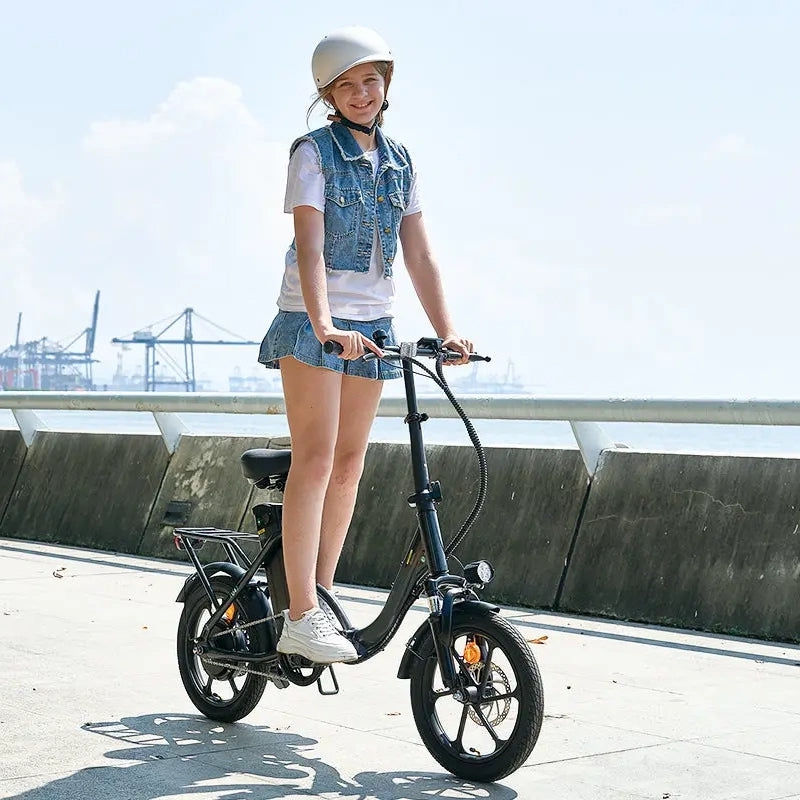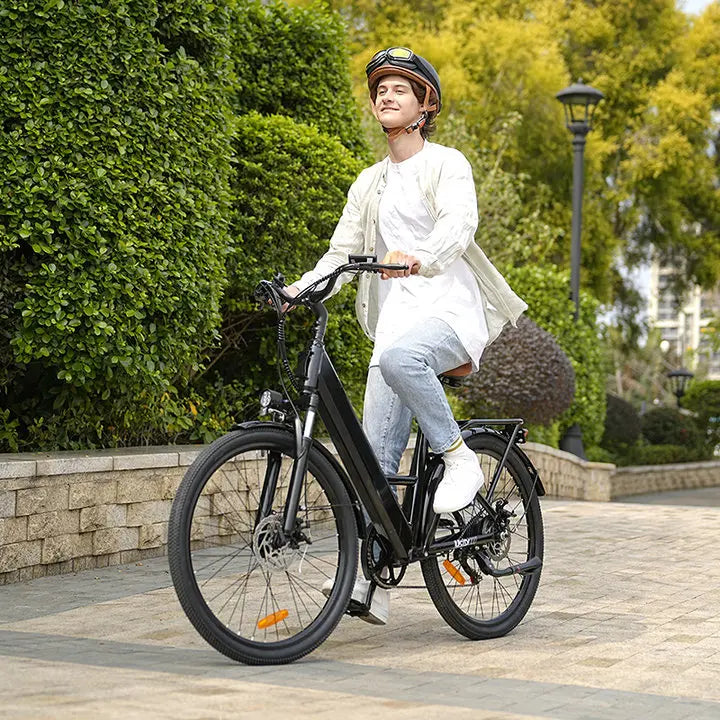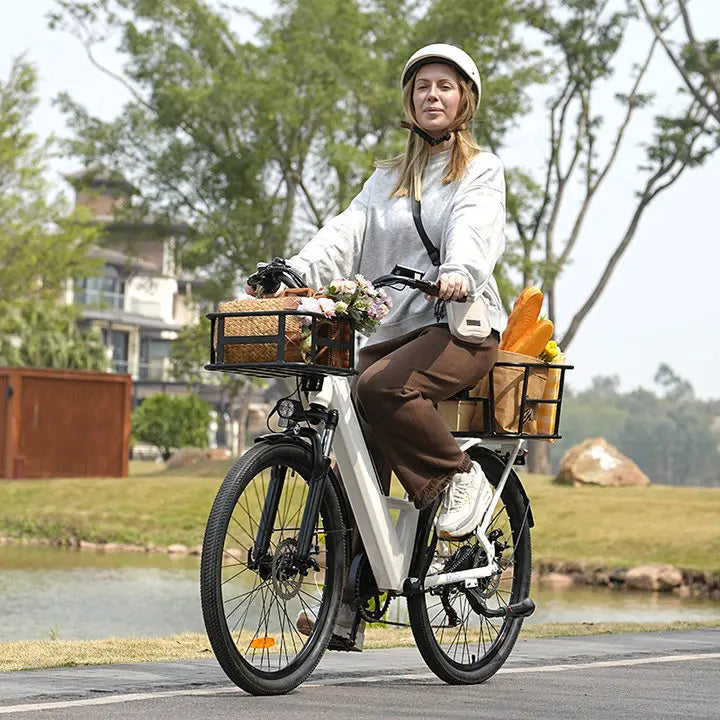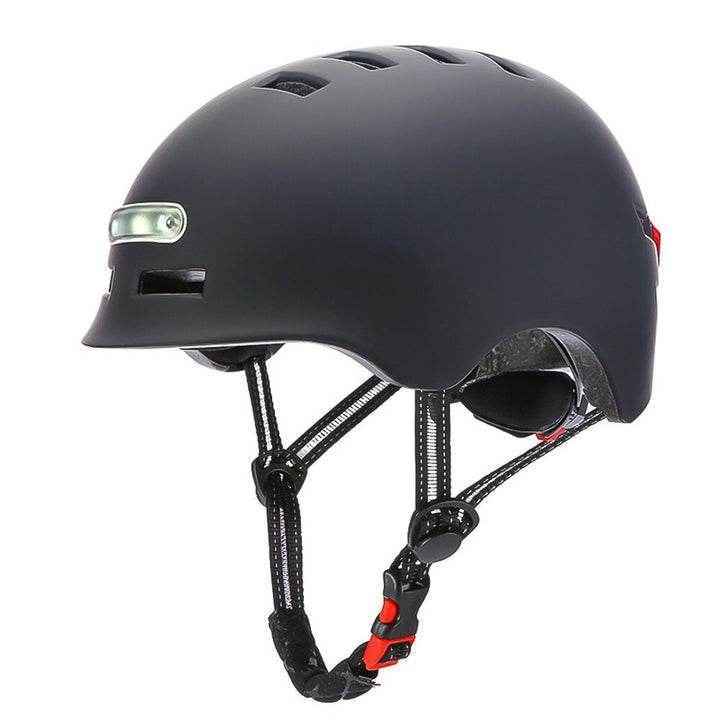Can You Take an Electric Bike on a Train in the UK and Other Countries in Europe?
Can You Take an Electric Bike on a Train in the UK and Other Countries in Europe
Riding your electric bike lets you appreciate scenic routes to the fullest. However, it’s quite a distance getting to these paths while pedalling. Most riders opt for a train ride to such destinations, but with your bike with you, it begs the question, “Can you take an electric bike on a train?”
Taking the train is not only a way to get to your destination, but it is also one of the most sustainable modes of transportation. Combine this with e-bike rides, and you have yourself an eco-friendly trip.
This is a comprehensive guide to the rules and regulations for taking an e-bike on a train. Read on to find out where and when you can take an electric bike on a train in the UK and other European countries, as well as other factors to consider.
Can You Take an E-Bike on a Train in the UK?
Yes, you can take an electric bike on a train in the UK if it follows certain specifications and conforms to the necessary policies.
This is only valid for electric bikes; other electric motorable vehicles, such as e-scooters, e-skateboards, mopeds, and motorbikes, are prohibited on trains. Most trains also prohibit tricycles, tandems, handbikes, and bikes with trailers.
Taking an electric bike on a train in the UK is free of charge once it is allowed. Let’s look at what it takes to get your e-bike on board a train in the UK.
Rules and Regulations for Taking E-Bikes on Trains
Here are the main factors to consider before you can take your e-bike on a train:
Electrically Assisted Pedal Cycle (EAPC)
A specific type of e-bike is allowed on trains, and it is called an electrically assisted pedal cycle (EAPC). These accepted e-bikes are allowed because they are categorised as normal bicycles.
To have this categorisation, EAPCs have a set of specifications they must adhere to. The criteria include:
-
Must be pedal-operated to activate motor assistance.
-
An electric motor with power output and speed that doesn’t exceed 250 watts and 15.5 miles per hour (mph), respectively.
-
A battery capacity that doesn’t exceed 500 Watt-hours (Wh). Charging on board is almost always prohibited.
-
Bike specifications and information are marked on the e-bike.
Being an EAPC is the first valid step to your e-bike being accepted on a train.
Foldability
Foldable e-bikes (EAPCs, of course), that can be folded to a size of 85cm (wheels included), are allowed on all trains in the UK. This is because being folded to that dimension lets you safely stow your e-bike in the luggage rack, saving space and not inconveniencing any passenger.
However, very few train companies have added requirements:
-
c2c and Stansted Express: You must carry the folded bikes in a protective case.
-
Elizabeth line and London Overground: Carrying of folding e-bikes is limited to one per vestibule area at peak times.
Policies involving non-folding e-bikes vary depending on the train operators. They usually involve a reservation and the consideration of peak times.
Required Reservations
Some train companies only permit limited bike spaces for non-folding bikes (Some as low as just 2). Due to this, reservations are required beforehand.
You can make your bike space reservation at the train station for free, however, it is advisable to do this earlier. You should also be at the station before the train arrives to receive the necessary details about your reservation and how to get settled.
Here is a list of some train companies and their stance on bike reservations:
|
Train Company |
Reservation Needed? |
Bike Spaces (per train) |
Extra Information |
|
Avanti West Coast |
Yes |
4-8 |
Tandems are allowed on the Pendolino trains |
|
c2c |
No |
Varies |
Peak times included |
|
Caledonian Sleeper |
No |
3-6 |
Subject to availability |
|
CrossCountry |
No |
2-3 |
Admission is on a first-come, first-served basis |
|
East Midlands Railway |
Yes |
2 |
Reservations must be made in advance |
|
Great Western Railway |
Mixed |
Varies |
Compulsory on Intercity Express |
|
LNER |
Yes |
Centre of the train |
Tandems are allowed but require 2 reservations |
|
London Overground |
No |
Varies |
Peak times included |
|
ScotRail |
Mixed |
Up to 4 |
Reservations are required on certain routes, especially busy ones like Glasgow and Edinburgh services. |
|
Southeastern Railway |
No |
Varies |
Subject to availability, peak times, and locations |
|
South Western Railway |
Mixed |
2-4 |
Peak times included |
|
TransPennine Express |
Yes |
Varies |
Reservations must be made in advance |
|
Transport for Wales |
No |
Varies |
Reservations must be made in advance |
|
West Midlands Railway |
No |
2 |
Admission is on a first-come, first-served basis |
Peak Time
Peak hours refer to the busiest times of the day, usually when workers commute to or from work. Some train companies consider these times and prohibit access to non-folding bikes.
The peak times vary depending on company cycle policies, but the most common peak times are:
-
Morning peak: Around 07:00 to 09:30
-
Evening peak: Around 16:30 to 18:30
Times not within the peak times are called off-peak times, and non-folding e-bikes are usually allowed during them.
Bus Replacements
A final addition is that if your train ride is cancelled and a replacement bus is provided, you can’t take your non-folding e-bikes. For the folding e-bikes, you should check with the bus service, however, they are mostly accepted.
Can You Take an Electric Bike on a Train in Europe?
Yes, most European countries accommodate electric bikes on trains with various regulations. Many rules are similar to those in the UK, with foldable e-bikes giving more leeway and specifications such as maximum power output, top speed, and battery capacity.
Some major differences are that many other European countries require you to pay for a ticket for bike reservations, and these reservations are usually mandatory for non-folding bikes, especially on busy or long-distance trains. This includes popular countries like Germany, France, and the Netherlands.
Here is a table summarising the common practices in some European countries:
|
Country |
Bike Ticket Required? |
Reservation Needed? |
Extra Information |
|
Germany |
Yes |
Often, especially long-distance |
Regional and ICE trains require tickets; folding bikes are exempt |
|
France |
Yes (regional); sometimes restricted on TGV (i.e. high-speed trains) |
Usually on TGV |
Many TGVs only allow foldable e-bikes |
|
Italy |
Yes (regional); limited access on high-speed trains |
Sometimes |
Frecciarossa and other fast trains often don’t allow non-folding e-bikes |
|
Spain |
Yes (regional); sometimes restricted on TGV (i.e. high-speed trains) |
Yes on AVE |
AVE only allows folding e-bikes under size limits. |
|
Netherlands |
Yes |
No (usually) |
Day tickets for bikes (except in July–August with more restrictions). |
|
Belgium |
Yes |
Not usually |
Fixed bike fee applies; foldable e-bikes travel free. |
|
Austria |
Yes |
Sometimes on long routes |
Generally bike-friendly with tickets. |
|
Switzerland |
Yes |
Yes, on InterCity trains |
Foldable e-bikes are usually treated as luggage. |
|
UK (In comparison) |
No (usually) |
Only on certain routes |
Most regional trains allow bikes without charge; high-speed trains like Eurostar require booking. |
Generally, high-speed trains have stricter rules compared to regional trains.
Tips for Taking Your E-Bike on a Train
Here are effective ways to ensure you can get your e-bike on the train:
-
Get a foldable commuter e-bike.
-
Get a protective carrying bag for your foldable e-bike.
-
Make reservations 24 hours in advance.
-
Get to the train station 30 minutes early.
-
Check specific train operator policies.
What to Do if You Can’t Take Your E-Bike on a Train
If you have an electric bike that you can't take on the train, maybe due to specifications, lack of foldability, or late reservations, here are some viable solutions:
-
Lock your bike at the station's secure cycle parking.
-
Go without your e-bike and rent a bike at your destination.
-
Replace your e-bike with a foldable e-bike with the required specifications.
-
Find bike-friendly routes for your journey.
Quick Summary
So, can you take an electric bike on a train in the UK and other European countries? The answer is yes, but there are many things involved.
The UK is more flexible than other European countries. However, you don’t have much to worry about if you have a foldable Electrically Assisted Pedal Cycle (EAPC) that can fit in the luggage rack.
If your e-bike isn't foldable, you have some research to do along your route. This may include finding out about:
-
Bike space reservations.
-
Peak times.
-
Ticket purchase.
FAQs
Here are answers to some frequently asked questions about taking e-bikes on the train.
Where Do I Put My E-Bikes on a Train?
If you have a foldable e-bike, you can fold it up and keep it in the luggage racks, usually overhead but sometimes underneath the seats.
For non-folding e-bikes, the designated location is usually around carriage doors designated with a bicycle symbol. These locations often have hooks, straps, or standing slots to secure your e-bike.
Why Are E-Scooters Banned on Trains but Not E-Bikes?
E-scooters have lithium-ion batteries below them that are prone to overheating, making them a safety risk. In addition to the small size and lack of designated holding points, train stations decided to prohibit them.
Are Electric Bikes Allowed on the Tube?
Non-folding e-bikes are generally not allowed on the Tube at any time because of size and congestion concerns. Foldable e-bikes are allowed during off-peak times.
Can I Bring My Bike on a Bus?
Foldable e-bikes are allowed on buses as luggage. Non-folding e-bikes are usually not allowed due to space and safety concerns. Some buses have front-mounted bike racks that can carry 2–3 bikes.
Do I Have to Buy a Train Ticket for My E-Bike?
In the UK, you don’t have to buy train tickets for your e-bikes. Some stations require you to make reservations, but it is free. Purchasing tickets is more common in other European countries like Germany, France, and the Netherlands.



















































